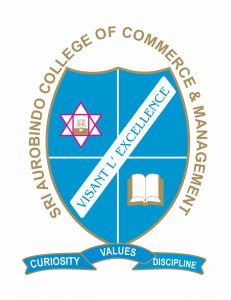 Col. P.S.Choudhry is presently working as the Director (Education) in Sri Aurobindo College of Commerce and Management as well as the Secretary of the College Managing Committee. He has pursued Masters in English as well as Masters in Business Administration with specialisation in HR (Human Resources). He has also been a Fellow of British Institute of Management, U.K. for 8 years. He has served Indian Army for a period of 27 years, beginning from 1964 till 1991. He has been writing military publications and has also co-authored some books. He holds instructional experience in army as well, which has stemmed from a number of training programmes that he had been conducting for Officers from Indian Army and Commonwealth Countries during his service period. Immediately after retirement from the Indian Army, he started working with Vardhman Group of Companies, occupying different positions ranging from that of a Chief Manager at Malerkotla for two years to the HR Head at Vardhman’s Corporate Office, Ludhiana. The rich instructional experience that he gained during his service in Army has been a key input in his endeavours for HR Training and Development at Vardhman. Besides conducting management training programmes, he conceived training programme for the Officers of IRS (Indian Revenue Services) Cadre for interface with industry. Not only this, he conceptualised and implemented training for socially underprivileged students to make them employable.
Col. P.S.Choudhry is presently working as the Director (Education) in Sri Aurobindo College of Commerce and Management as well as the Secretary of the College Managing Committee. He has pursued Masters in English as well as Masters in Business Administration with specialisation in HR (Human Resources). He has also been a Fellow of British Institute of Management, U.K. for 8 years. He has served Indian Army for a period of 27 years, beginning from 1964 till 1991. He has been writing military publications and has also co-authored some books. He holds instructional experience in army as well, which has stemmed from a number of training programmes that he had been conducting for Officers from Indian Army and Commonwealth Countries during his service period. Immediately after retirement from the Indian Army, he started working with Vardhman Group of Companies, occupying different positions ranging from that of a Chief Manager at Malerkotla for two years to the HR Head at Vardhman’s Corporate Office, Ludhiana. The rich instructional experience that he gained during his service in Army has been a key input in his endeavours for HR Training and Development at Vardhman. Besides conducting management training programmes, he conceived training programme for the Officers of IRS (Indian Revenue Services) Cadre for interface with industry. Not only this, he conceptualised and implemented training for socially underprivileged students to make them employable.
The Chairman, Mr. S.P. Oswal, always had a keen desire of setting up a commerce college in Ludhiana and finally, he sowed a sapling in the form of ‘Sri Aurobindo College of Commerce and Management’in the year 2004, which has been raised and nurtured by Col. P.S. Choudhry from a rudimentary level to an institute of academic excellence as on date. In the pursuit to bring academic excellence in SACCM, he has made significant contributions in the academic system. Firstly, he brought back the focus upon the utility of conventional teaching pedagogies like Lesson Planning for effective teaching. He also revamped the process of Question Paper Setting in an attempt to alleviate the students’ tendency to do selective study as well as to evaluate the students’ intellectual, analytical and problem solving abilities. Secondly, he laid emphasis upon Action Planning (borrowed from the term ‘MBO’), whereby, customised action plans are prepared after the assessment of answer sheets so as to manage the performance of average, above-average and academically potential students respectively. This way he has succeeded in applying the theory into practice. Furthermore, his role has been instrumental in introducing innovative pedagogic tools to the teaching learning processes. With an aim to learn innovations in teaching pedagogies, he visited Hull University, U.K., New York University, U.S. and Oxford University, U.K. from time to time. The innovative tools such asInter Section Subject Quiz (ISSQ) and Tutorial System that he learnt from these institutes of high academic repute, have been integrated into SACCM’s existing scholastic system in a restructured manner so as to suit the requirements of the college. While ISSQ is executed in the form of a subjects’ based quiz competition with an intent to instil the habit of regular studies among students, the Restructured Tutorial System (RTS) is executed in the form of small interactive classes separately, each composing of students of similar scholastic level and academic aptitude. The saga of his contribution to bring academic excellence is not yet over rather his efforts in the quest to bring further academic brilliance are untiring.

